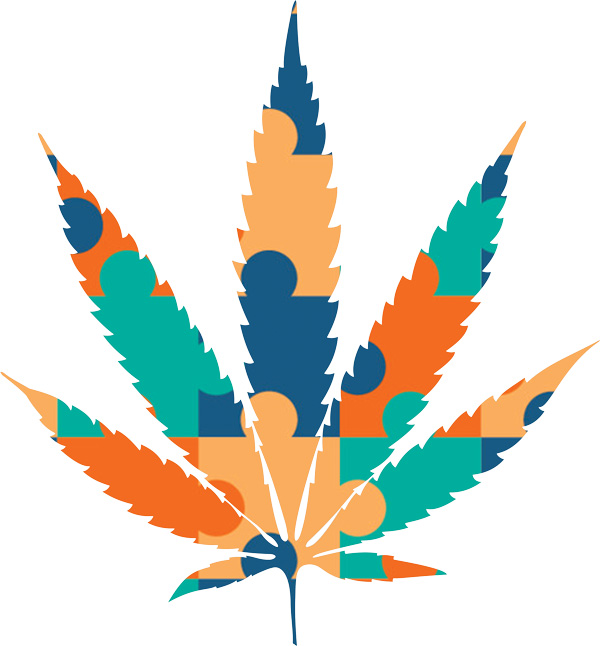After having read my two-part article on marijuana, one of my readers asked the question about whether I had heard about a mother in Texas having used the drug for treatment of her autistic child. The below info will inform Sun City residents of my recent exploration into this subject.
WebMD explains that Autism and other similar disorders “now fall under the broader term Autism Spectrum Disorder (ASD), WebMD continues, “It is a brain disorder that limits a person’s ability to communicate and relate to other people. It first appears in young children, who fall along a spectrum from mild to severe. Some people can navigate their world, some have exceptional abilities, while others struggle to speak. ASD affects about one child in 59, striking nearly four times as many boys as girls.” The Centers for Disease Control estimate this neurodevelopmental disorder to be found in one in 44 children.

Cannabis or marijuana is considered a Class 1 drug in the Unites States, which makes it difficult to study legally. Clinical trials throughout the world are extremely cautious with their findings. Below is one example of info given out by researcher, Dr. Adi Aran, director of the pediatric neurology unit at Shaare Zedek Medical Center in Jerusalem.
For his study, autistic kids were placed in one of three groups:
1. A placebo group (no drug used)
2. A group receiving the whole-plant extract of marijuana, and
3. A group that received a pure blend THC (tetrahydrocannabinol) compound, known to impact the social deficits of the brain. CBD was also used, among other compounds found in cannabis.
After two four-week periods (with a four-week break in the middle), kids showed these results: The children treated with cannabis extract improved 49% and 53% on scales measuring autism symptoms and disruptive behavior. The placebo group only improved 21% to 44%. Negative side-effects from taking marijuana produced a decrease in appetite, sleepiness, and disturbed sleep. Due to the significant rates of unwanted side effects, experts in the field recommend caution in using this form of treatment. A follow-up clinical trial with more children from different countries is now being planned. Aran comments, “It’s not a miracle treatment. It might be another tool in our toolbox.”
Nevertheless, three examples of parents of autistic children (up to the age of 18) have documented publicly their own private struggles in their effort to control self-imposed brain injuries from occurring to their ASD kids. CNN Chief Medical Correspondent, Dr. Sanjay Gupta, publicly comments, “They (autistic youths) have a certain routine. They like to do things over and over again.” He continues “They have repetitive behaviors, the most typical of which are things like hand-flapping or spinning in circles.” However, autism can also lead to more troubling issues such as severe disruptive behavior and self-harm (head-banging, pinching themselves, or biting their hands).” For the parent of the growing older ASD child, desperation then comes into play in an effort to control these actions.
Joann Fouquette’s son, Ezra, was diagnosed at 22 months old with autism. When Ezra was nine years old (2021), Joann enrolled her son in a clinical trial with CBD use (the non-psychoactive part of the cannabis plant). The trial was organized by the Center for Medicinal Cannabis Research at UC-San Diego. Early feedback has been positive. However, more new treatments need to be discovered to treat the core symptoms, and lessen the side effect burden.
Gupta adds “We know that in autism, there are some differences in brain chemistry. There are some changes in neurotransmitter systems, both in the dopamine system (it can reinforce behavior when we receive a reward and in the serotonin system (thought to regulate mood with a big effect on early brain development), that may contribute to some of the symptoms.”
Joann states on the computer that she is grateful for the study that her son finished a year ago: “It gave him (Ezra) an ability to speak. It gave him an ability to communicate more. I think that’s why the aggression left…It’s just going to make it easier for him — easier for him to live, easier for him to be himself.”
In Richardson, Texas, a state that does not allow legal purchase of marijuana for most medical use, Mark Zartler told his story in a home video, and posted in 2017 on Facebook and YouTube. With his story out of secrecy, Mark wanted to share hope for other ASD parents about his discovery of the use of tiny amounts of marijuana in vapor form (only enough for a misdemeanor in size) to help control his non-verbal daughter, Kara (then 7 years old), and her body-injuring behavior.
“It’s lessened. It doesn’t completely stop it…But it slows her down…to where she’s just more focused and aware.” Kara and her identical twin, Keeley, were born three months prematurely. Keeley has no health issues, while Kara has both cerebral palsy and autism. After breaking his silence to the public about his illegal marijuana use for his daughter, Mark and his wife had to become witnesses at Mr. Zartler’s own court hearing for him to continue as a fit guardian for his daughter, 17-year-old Kara. He won the judge’s verdict and began crusading for the passing of the Senate Bill 269/SB69 in 2018: It would change the medical marijuana law, so he would no longer have to break it
Rosendo Robles’ suffered from an abundant amount of health issues beginning at age four months. According to his mom, Mayra Rivera, “Despite all his trials and his surgeries and his illnesses, he always had the biggest smile…”
Nevertheless, after a three-month pneumonia hospital stay in McAllen, Texas, Rosendo died the next day from an arterial bleed, the result of a trachea surgery. Mayra had been helping treat her autistic and epileptic son with medical marijuana. In 2019, Mayra and members of Mothers Advocating Medical Marijuana for Autism were able to get Texas to finally include autism as a treatable condition under the Compassionate Use Marijuana Law, Senate Bill 69 (SB69). Rivera excitedly stated “I’m very grateful; I’m very proud that I can say I helped with that and it was my son that inspired me to do that!”
Rosendo Robles, with epilepsy and autism, was only 17 years old in McAllen, Texas, when he died.




